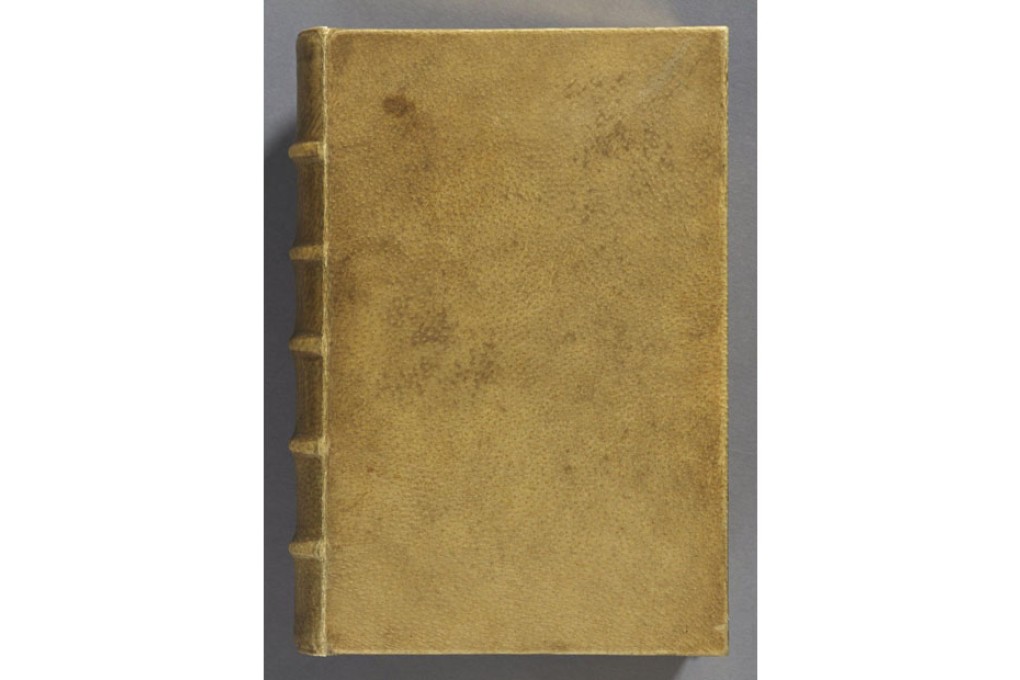Scientists confirm book in a Harvard library is bound in human skin
Practice used to cover 19th century French treatise on the soul was once common

Harvard University scientists have confirmed that a 19th century French treatise in its libraries is bound in human skin, Harvard University said, after a bevy of scientific testing.
Arsene Houssaye's Des destinees de l'ame (On the destiny of the soul) is part of the antique book collection of the university's Houghton Library, which specialises in rare and antique works.
Harvard conservators and scientists used several methods to test the origin of the book binding material, using microscopic samples. Through these tests, they were able to exclude the possibility that the book cover was made from the skin of a goat, a sheep or another animal.
A book about the human soul deserved to have a human covering
"They are 99 per cent confident that the binding is of human origin," said a post on the library's blog, citing senior rare book conservator Alan Puglia.
The conclusions confirm the veracity of a handwritten note in French found in the book, which said the book was bound "in human skin parchment".
"By looking carefully, you easily distinguish the pores of the skin," added the note, written by a doctor who was a friend of Houssaye, who lived 1815-1896.
"A book about the human soul deserved to have a human covering," explained the doctor, Ludovic Bouland.